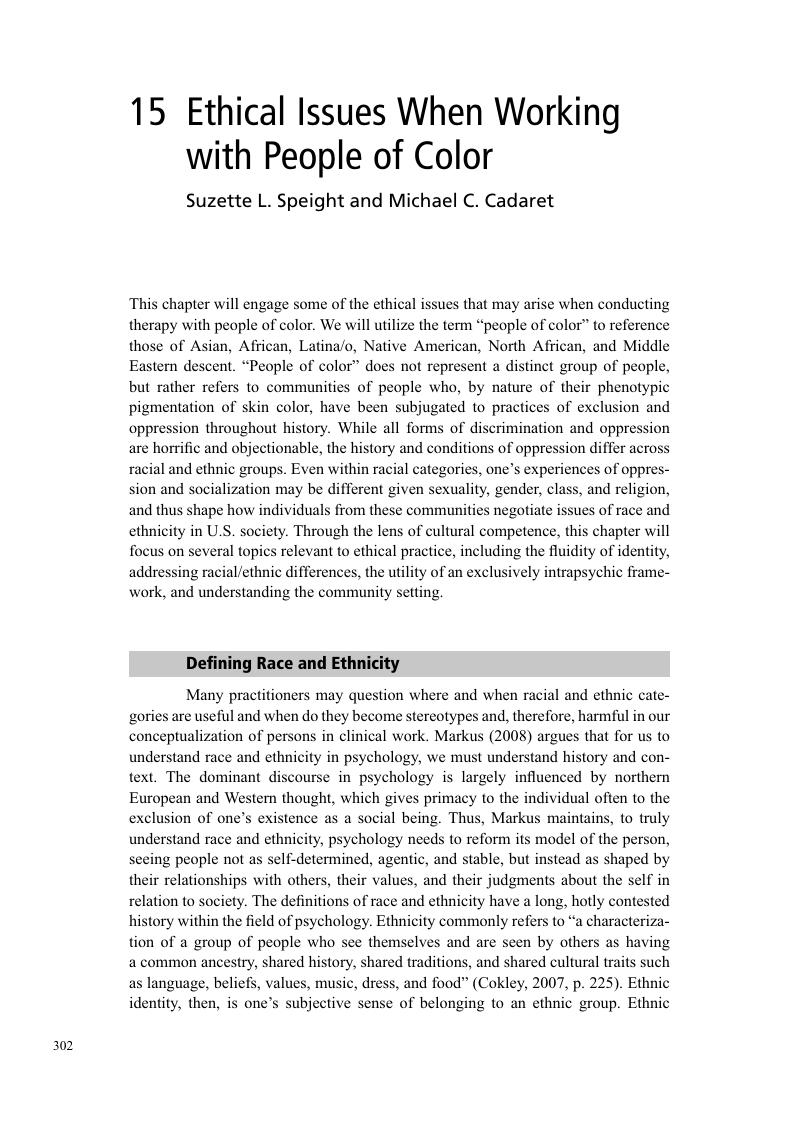Book contents
- The Cambridge Handbook of Applied Psychological Ethics
- The Cambridge Handbook of Applied Psychological Ethics
- Copyright page
- Dedication
- Contents
- Contributors
- Preface
- Acknowledgments
- Section I Ethical Issues in Specific Settings and Challenging Populations
- Section II Ethical Issues in Working with Diverse Populations
- 13 Ethical Issues in Working with Older Adults
- 14 Ethical Issues in Working with Individuals with Disability
- 15 Ethical Issues When Working with People of Color
- 16 Aging: Ethical Issues in Working with Diverse Populations
- 17 Applied Research in Diverse Communities: Ethical Issues and Considerations
- 18 Ethical Issues and Challenges Working with Religious Individuals and Organizations
- 19 Ethical Issues Associated with Mental Health Interventions for Immigrants and Refugees
- 20 Ethical Issues in Psychotherapy with Lesbian, Gay, Bisexual, and Transgender Clients
- Section III Legal, Research, and Organizational Issues
- Section IV Emerging Ethical Issues in Professional Practice and Next Steps
- Index
- References
15 - Ethical Issues When Working with People of Color
from Section II - Ethical Issues in Working with Diverse Populations
Published online by Cambridge University Press: 14 February 2018
- The Cambridge Handbook of Applied Psychological Ethics
- The Cambridge Handbook of Applied Psychological Ethics
- Copyright page
- Dedication
- Contents
- Contributors
- Preface
- Acknowledgments
- Section I Ethical Issues in Specific Settings and Challenging Populations
- Section II Ethical Issues in Working with Diverse Populations
- 13 Ethical Issues in Working with Older Adults
- 14 Ethical Issues in Working with Individuals with Disability
- 15 Ethical Issues When Working with People of Color
- 16 Aging: Ethical Issues in Working with Diverse Populations
- 17 Applied Research in Diverse Communities: Ethical Issues and Considerations
- 18 Ethical Issues and Challenges Working with Religious Individuals and Organizations
- 19 Ethical Issues Associated with Mental Health Interventions for Immigrants and Refugees
- 20 Ethical Issues in Psychotherapy with Lesbian, Gay, Bisexual, and Transgender Clients
- Section III Legal, Research, and Organizational Issues
- Section IV Emerging Ethical Issues in Professional Practice and Next Steps
- Index
- References
Summary

- Type
- Chapter
- Information
- The Cambridge Handbook of Applied Psychological Ethics , pp. 302 - 320Publisher: Cambridge University PressPrint publication year: 2018



